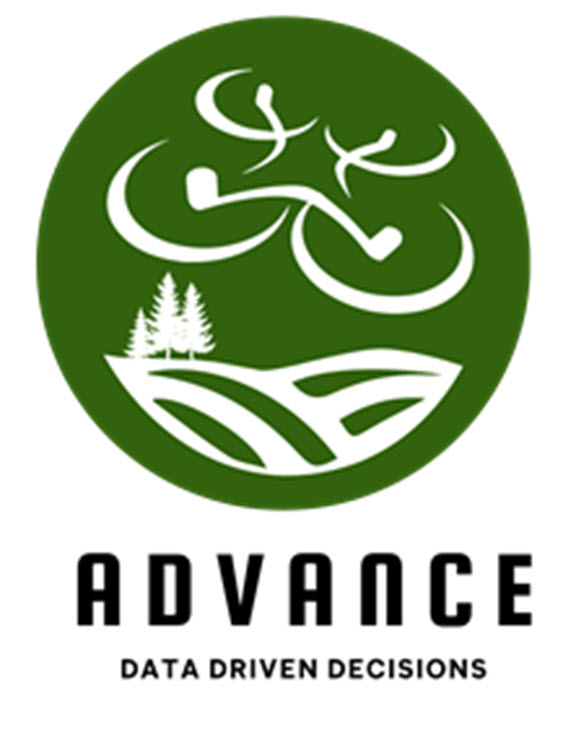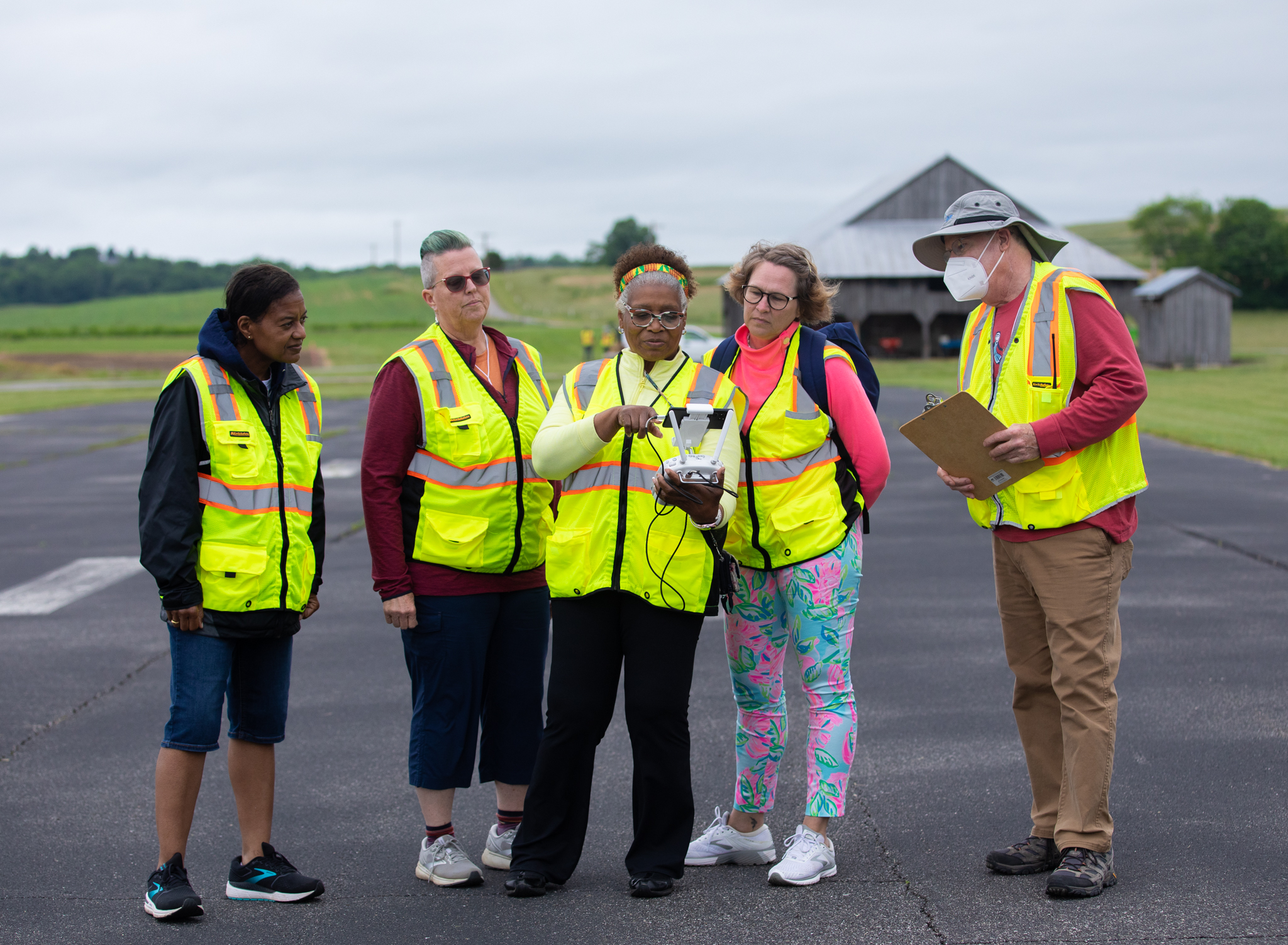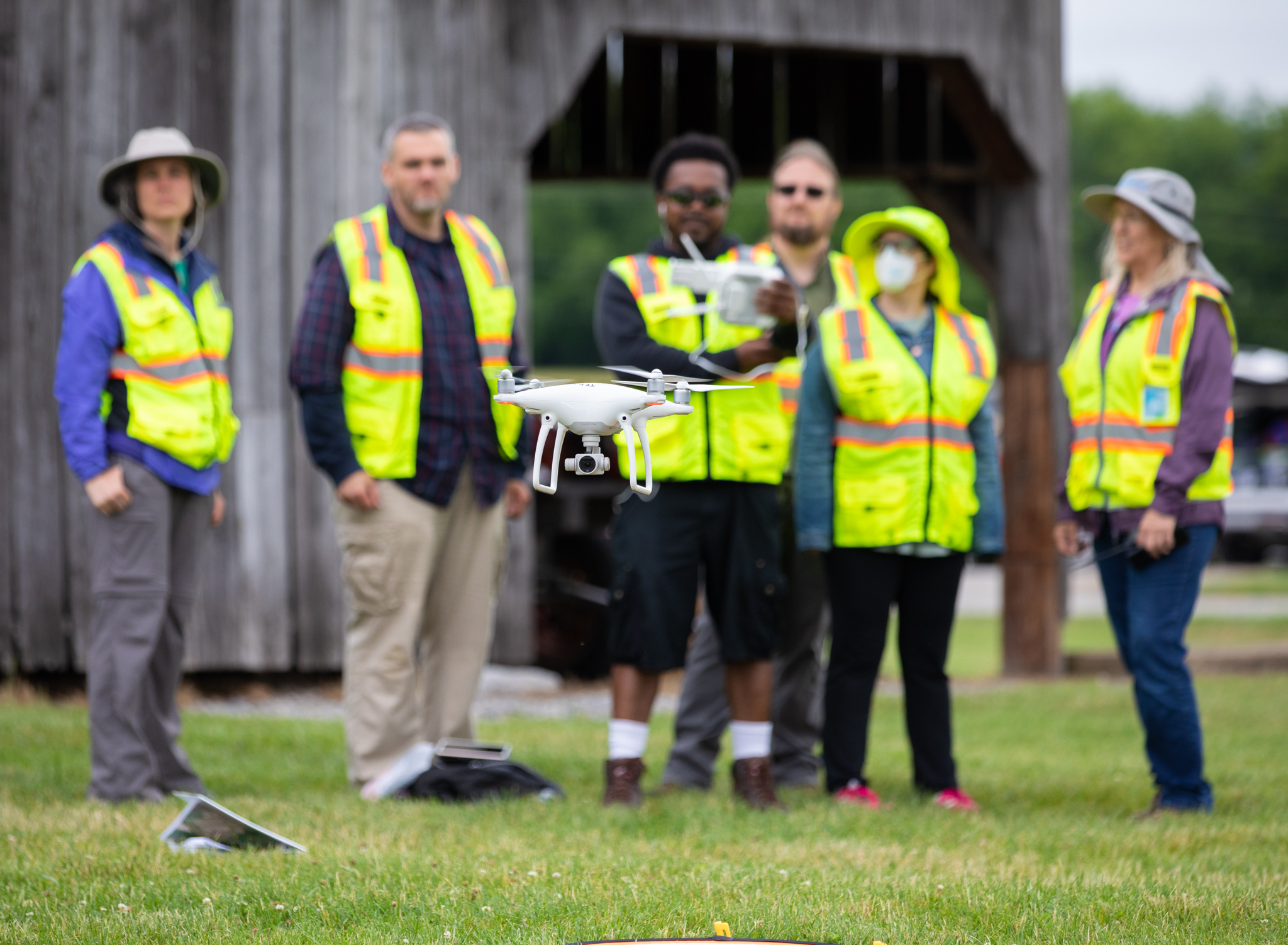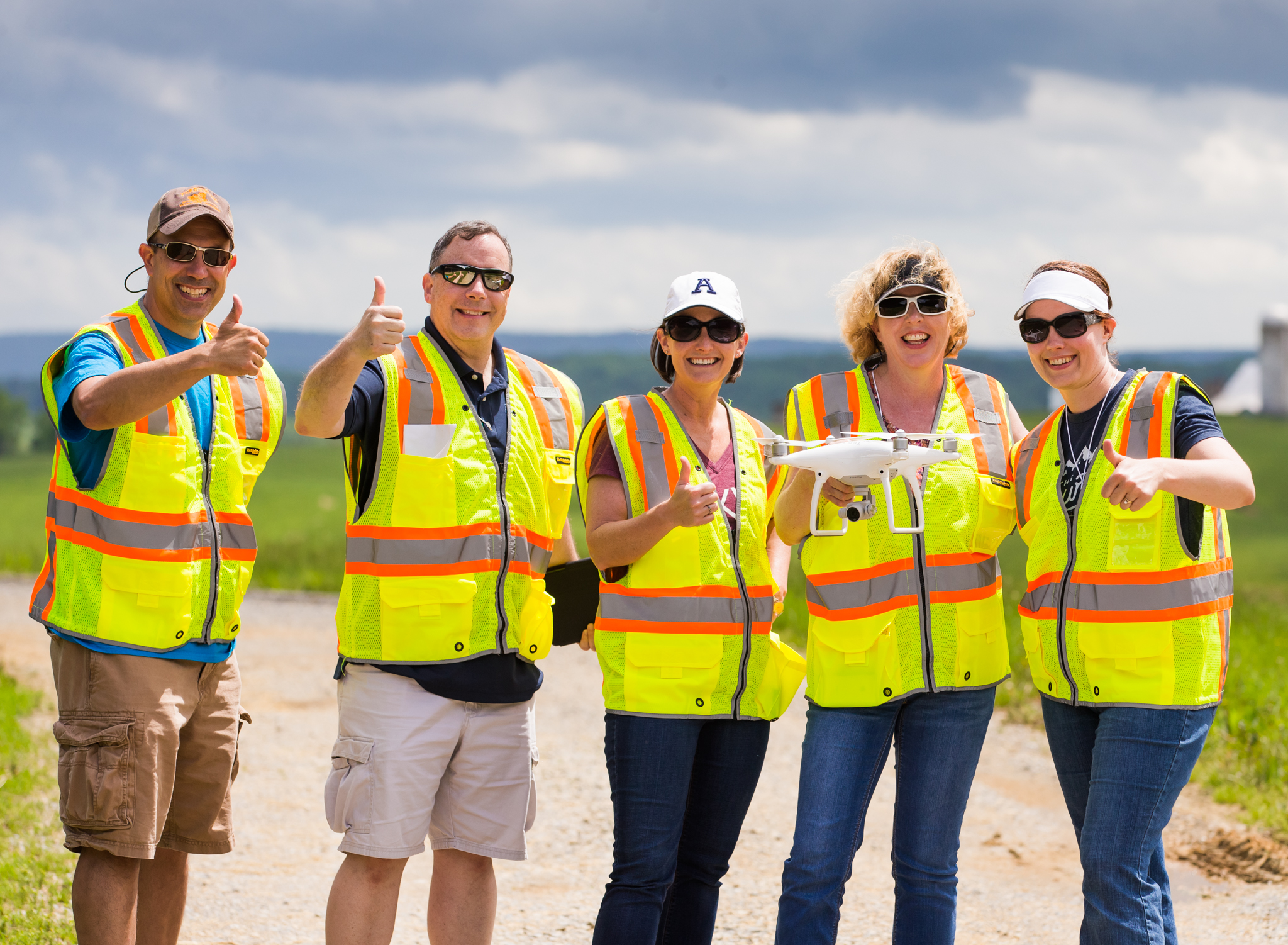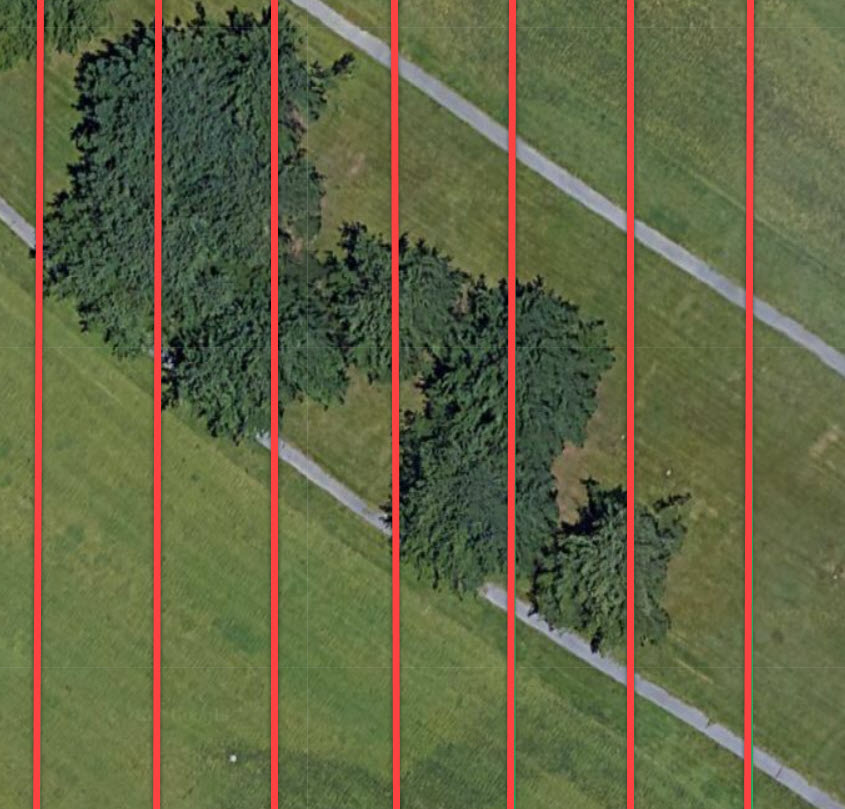Summer 2026: Cohort #2
Professional Development Opportunity for High School CTE Teachers
What: The program An Experiential and Data-driven Approach to Agricultural Education (ADVANCE) is a face-to-face professional workforce development opportunity that provides educators with the knowledge, experience, curriculum resources, supplies/equipment, and mentoring to support the implementation of drones and precision agriculture concepts in the classroom. This is a hands-on, field-based workshop. After completing the ADVANCE program, participants will be FAA remote pilot certified, knowledgeable, and experienced in implementing a complete drone-mapping workflow.
Target Audience: Middle/High school educators and/or 2-year college faculty teaching STEM related courses (agriculture, forestry, biology, environmental science, robotics, or related topics). Applications from CTE teachers are encouraged.
When (face-to-face workshop at Virginia Tech): June 1-4, 2026
Topics: Precision Agriculture / Mapping with Drones / Data-Driven Decisions / Collecting data with sensors / Remote Sensing / Workflows
Application: An online application is available from https://tinyurl.com/ADVANCEChort2. Note that one component of the application process is to provide a letter of commitment from an administrator (principal, dean, etc.), with evidence of institutional support. An example commitment letter is available from here. This letter can be uploaded during the online application process, or it can be emailed to jmcg@vt.edu at a later date (must be received by October 1). If emailed, please include “ADVANCE Letter of Commitment-teacher’s last name” in the subject line of the email. Program applications must be received by October 1. Applicants will be notified of acceptance shortly thereafter.
Expectations and covered costs:
- Accommodations: Food & lodging at Virginia Tech during the face-to-face workshop (June 1-4, 2026) are provided
- Mentorship: An ADVANCE mentor will help you to problem-solve and support the integration of your new knowledge & skills in the classroom
- Teacher stipend: Participants will receive a stipend (minimum of $1,200) after meeting baseline expectations which include:
- Attendance at program webinars and a short virtual course (to help you get ready for your remote pilot certification test)
- Remote pilot certification
- Attendance at the ADVANCE Institute (at Virginia Tech, June 1-4 2026)
- Evidence of implementation (could include one or more of the following: classroom integration, after-school program or outreach programs, pathway integration, student service learning project, new course development, etc.). You and your ADVANCE mentor will design an implementation plan together.
- Educational supplies: Participants will receive educational resources & supplies to take back to their classroom
- FAA Remote Pilot Certificate:
- Participants will receive free registration or will be reimbursed for attending a virtual short course to help prepare you for your FAA Remote Pilot Certificate (aka Part 107) test ($200)
- The ADVANCE project will cover testing fees for the FAA Remote Pilot (aka Part 107) test ($175 value, reimbursed after successful completion)
- Participant mini-grants: Each teacher can receive a $2,200 mini-grant to purchase related educational supplies for the classroom. Mini-grant options will be provided, or teachers can make other selections based on individual and institutional needs. Note that supplies provided by the mini-grant are the property of the school (not of the teacher).
- Software: is provided for participants to take back to their schools.
Costs that are not covered
- Participant travel expenses (mileage, etc.) to and from Virginia Tech the June 1-4 workshop is not covered through the ADVANCE project. Institutions (schools, community colleges) are expected to cover the cost of transportation for educators to and from Blacksburg, VA. The letter of commitment from the educator’s administrator (required to complete the application process) must state that the institution supports or provides travel accommodations (state car, mileage reimbursement, etc.) to and from Blacksburg (see example letter).
- Teacher participants will receive a $2,200 mini-grant to purchase related classroom teaching resources. However, as of Fall 2004, federal funds cannot be used to purchase a foreign-made mapping drone (per federal regulation). School administrators are therefore encouraged to seek state or local funding to support the purchase of an entry-level mapping drone (~$2,200) for instructional support if the school does not have access to one already. The ADVANCE program leadership team is available to provide some appropriate (entry-level, user-friendly) options if needed.
A .pdf of this information is available from here.
Testimonials from educators who attended the ADVANCE Summer 2025 (Cohort #1) program and similar workshops:
I have been in the classroom for more than 25 years and have attended a lot of professional development programs. The ADVANCE institute experience ranks up there with a handful of meaningful and empowering professional development experiences. The tools, content, information, and expertise shared was authentic, practical, balanced between beginner and advanced, and inspiring. I can’t wait to implement what I’ve learned next year with my students! Thank you for offering this experience.
-ADVANCE Participant (Summer 2025)
This is one of the best opportunities I’ve had the pleasure of being a part of. From start to finish, the leaders provided rigorous, meaningful discussions that helped me not only feel more at ease, but they also taught me so much. I’m very excited to implement this with my students in the upcoming school year.
-ADVANCE Participant (Summer 2025)
The program was very well organized and all instructors were very well informed. All the mentors and leaders were always available for help and to answer questions. They provided a lot of useful resources and links that will help us with our teaching.
-ADVANCE Participant (Summer 2025)
The ADVANCE institute has proven to be an awesome experience. As a novice at drone knowledge and operation, I was concerned about attending but everyone has been great to work with and very interested in helping me with all my questions. The wealth of resources given to us is amazing. Overall it was a great program.
-ADVANCE Participant (Summer 2025)
The workshop was well-planned and organized. The instructors were engaging, professional, and knowledgeable. I was a bit intimidated going into the workshop. Within a few minutes, the team had me at ease, and I was eager to learn. Each segment was easy to understand and well explained. I appreciated all the takeaways – printed copies of the presentations, flight checklists, etc…All the instructors readily answered questions and offered comprehensive, but not overwhelming, answers.
-High School Educator
This was by far one of the best training programs I have attended in my 30+ years of Extension work. The instructors were extremely well-prepared and knowledgeable.
-VCE Agricultural Extension Educator
This workshop has given me the confidence and knowledge to further my drone skills. All of the instructors were extremely knowledgeable and very patient with our questions. It was a great mix of hands-on in the field and computers in the office to get the full picture of how to plan a drone flight from start to finish. We got to see a variety of ways they use the drone for research and projects which was very enlightening. I would take this class over again it was so much fun.
-High School Educator
This workshop was of tremendous value. The content was all-encompassing and took me as a student from the understanding of bare basics to feeling confident in my ability to take the Part 107 (test) and utilize a drone for mapping purposes…
-Local Government Employee
This workshop was exactly what I needed to help me think through the details of operating a drone with Virginia Tech undergraduates to help support urban temperature mapping in Roanoke. I was primarily interested in learning about how to operate safely, how to identify risks and how to mitigate them, and what kind of equipment would be best for my needs. All of these topics were well-covered in this workshop…
-Higher Education Faculty
This program is supported by the project An Experiential and Data-driven Approach to Agricultural Education (ADVANCE), award no. 2024-67037-42597, from the U.S. Department of Agriculture National Institute of Food and Agriculture.
Virginia Cooperative Extension is a partnership of Virginia Tech, Virginia State University, the U.S. Department of Agriculture, and local governments. Its programs and employment are open to all, regardless of age, color, disability, sex (including pregnancy), gender, gender identity, gender expression, genetic information, ethnicity or national origin, political affiliation, race, religion, sexual orientation, or military status, or any other basis protected by law.
